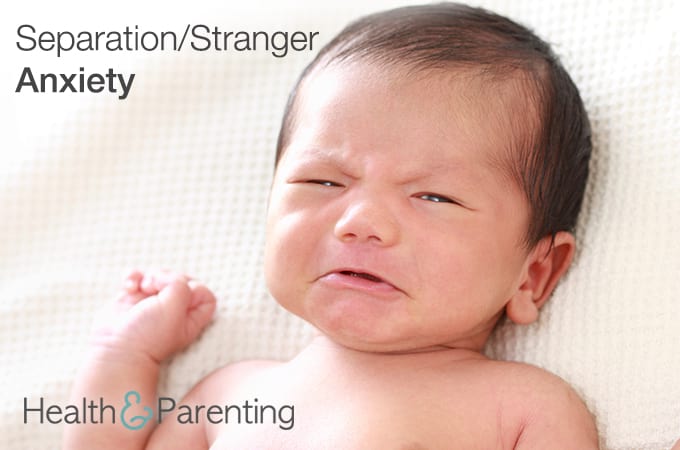You love spending time with your baby and being a mom. But there comes a time when you have to leave your little one in a capable caregiver’s hands. Whether it’s to go to work, a date night or a trip to the dentist, separation is not always easy.
Most babies experience separation and stranger anxiety at some point. Although it can vary, separation and stranger anxiety may start when your baby is as young as six months old. It often peaks a little later about ten to 12 months of age.
Why Does Separation/Stranger Anxiety Happen?
When your baby was a newborn, he recognized your face and voice and bonded with you. But he was pretty unaware that he was an individual and separate from you.
As your baby gets a little older, he starts to understand he is his own little person. He begins to realize that you can leave him, and he may not be cool with that. In fact, he might let you know how upset he is by screaming and crying.
Keep in mind separation and stranger anxiety is considered a normal developmental milestone. Although knowing that it’s normal does not make it any easier to deal with. But here are several things you can do to ease the stress for both of you.
When your baby is going through stranger or separation anxiety, try to use caregivers your baby already knows. If your little one is cared for by someone new, give your baby a little time to warm up to the caregiver before you leave or consider doing a trial run. For example, have a new sitter come over and play with your baby for an hour while you’re there before leaving them alone.
Even if you have considered it, don’t sneak off. If you try to sneak out without your baby seeing, it may make it easier for you, but she may be more upset thinking you vanished. Also, avoid long goodbyes and running back in to see if your baby is OK. It only drags outs the situation.
When you leave, display an upbeat attitude, give your baby a kiss and tell her you’ll see her later. She may not understand your words, but she will pick up on your attitude. If you’re upset, she may get that way too. Help your baby realize when you leave it’s not a big deal.
Separation anxiety can also occur at bedtime when you leave your baby in his room at night. Spend time before bed, snuggling, singing and rocking your baby. Make it a peaceful, quiet time to help your little one relax. If your baby cries after you put her down, a quick peek in and reassuring pat may be helpful so she can learn to fall asleep on her own.
Although it can be upsetting or frustrating at times, keep in mind separation anxiety will pass. Before you know it, your teen will enjoy being separated from you, maybe even a little too much. So for now, enjoy being number one in your baby’s life.
Written by MaryAnn DePietro @ writerlady34
This information is not intended to replace the advice of a trained medical doctor. Health & Parenting Ltd disclaims any liability for the decisions you make based on this information, which is provided to you on a general information basis only and not as a substitute for personalized medical advice. All contents copyright © Health & Parenting Ltd 2016. All rights reserved. “










